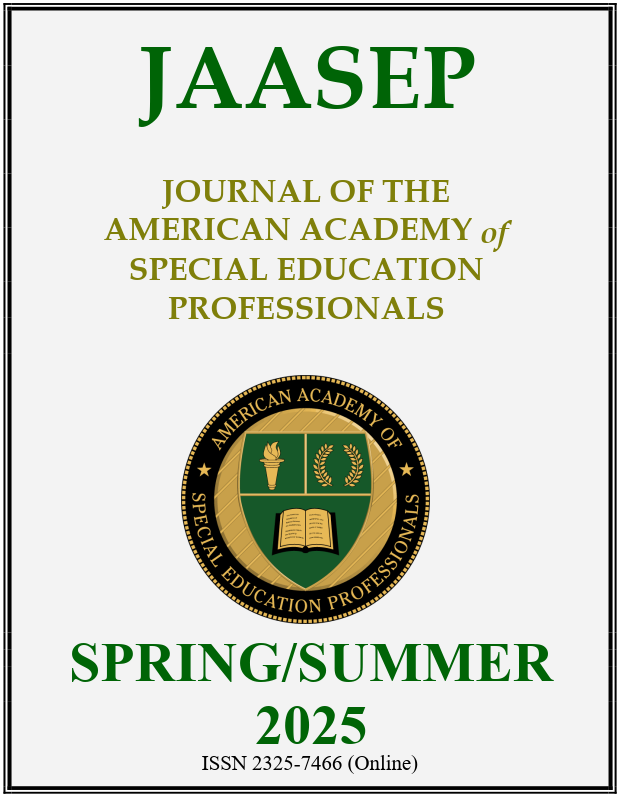Teachers’ Perceptions of the Effects of Remote Learning
Ali, W. (2020). Online and remote learning in higher education institutes: A necessity in light of COVID-19 pandemic. Higher Education Studies, 10(3), 16-25. https://eric.ed.gov/?id=EJ1259642 DOI: https://doi.org/10.5539/hes.v10n3p16
Bashir, K., Kausar, Z., Khan, S. M. S., Qurieshi, M. A., Haq, I. (2023). Teachers’ perceptions of the impact of COVID-19 pandemic and virtual teaching on the physical and mental health of children in Kashmir: A qualitative study. Indian Journal of Psychiatry, 65(4), 419-423. doi:10.4103/indianjpsychiatry.indianjpsychiatry_393_22 DOI: https://doi.org/10.4103/indianjpsychiatry.indianjpsychiatry_393_22
Bozkurt, A., & Sharma, R. C. (2020). Emergency remote teaching in a time of global crisis due to coronavirus pandemic. Asian Journal of Distance Education, 15(1), i-vi.
Bracho, C. A. (2020). Reclaiming uplift: Caring for teacher candidates during the COVID-19 crisis. Issues in Teacher Education, 29(1), 12-22. http://search.proquest.com.librda.mville.edu:2048/scholarly-journals/reclaiming-uplift-caring-teacher-candidates/docview/2478109304/se-2?accountid=12257
Bubb, S., & Jones, M.-A. (2020). Learning from the COVID-19 home-schooling experience: Listening to pupils, parents/carers and teachers. Improving Schools, 23(3), 209–222. https://doi.org/10.1177/1365480220958797 DOI: https://doi.org/10.1177/1365480220958797
Christensen, R., & Alexander, C. (2020). Preparing K-12 schools for a pandemic before it occurs. Journal of Technology and Teacher Education, 28(2), 261-272. DOI: https://doi.org/10.70725/884574uilsbl
Daniel S. J. (2020). Education and the COVID-19 pandemic. Prospects, 1–6. Advance online publication. https://doi.org/10.1007/s11125-020-09464-3 DOI: https://doi.org/10.1007/s11125-020-09464-3
Dhawan, S. (2020). Online learning: A panacea in the time of COVID-19 crisis. Journal of Educational Technology Systems, 49(1), 5-22. https://doi.org/10.1177/0047239520934018 DOI: https://doi.org/10.1177/0047239520934018
Falcone, A., & Hall, J. (2020). Responding to COVID-19—Reflections on teaching, from reaction to reinvention. International Information & Library Review, 52(4), 311–317. https://doi.org/10.1080/10572317.2020.1834245 DOI: https://doi.org/10.1080/10572317.2020.1834245
Ferri, F., Grifoni, P., & Guzzo, T. (2020). Online learning and emergency remote teaching: Opportunities and challenges in emergency situations. Societies, 10 (4), 86 DOI: https://doi.org/10.3390/soc10040086
Gudmundsdottir, G. B., & Hathaway, D. M. (2020). “We always make it work”: Teachers’ agency in the time of crisis. Journal of Technology & Teacher Education, 28(2), 239–250. DOI: https://doi.org/10.70725/839558bffbol
Hebebci, M. T., Bertiz, Y., & Alan, S. (2020). Investigation of views of students and teachers on distance education practices during the coronavirus (COVID-19) pandemic. International Journal of Technology in Education and Science (IJTES), 4(4), 267-282. DOI: https://doi.org/10.46328/ijtes.v4i4.113
Henriksen, D., Creely, E., & Henderson, M. (2020). Folk pedagogies for teacher educator transitions: Approaches to synchronous online learning in the wake of COVID-19. Journal of Technology & Teacher Education, 28(2), 201–209. DOI: https://doi.org/10.70725/410492lqewwm
Jones, E. (2020). Care remains “Essential” in education today. JOPERD: The Journal of Physical Education, Recreation & Dance, 91(6), 8–9. https://doi.org/10.1080/07303084.2020.1770520 DOI: https://doi.org/10.1080/07303084.2020.1770520
Kaden, U. (2020). COVID-19 school closure-related changes to the professional life of a K-12 teacher. Education Sciences, 10(6), 165. http://dx.doi.org/10.3390/educsci10060165 DOI: https://doi.org/10.3390/educsci10060165
Kim, L. E., & Asbury, K. (2020). “Like a rug had been pulled from under you”: The impact of COVID‐19 on teachers in England during the first six weeks of the UK lockdown. British Journal of Educational Psychology, 90(4), 1062–1083. https://doi.org/10.1111/bjep.12381 DOI: https://doi.org/10.1111/bjep.12381
Koerner, M. (2020). At the heart of a teacher: Schooling in a pandemic. Journal of Interdisciplinary Studies in Education, 9(1), 172–174. https://doi.org/10.32674/jise.v9i1.2371 DOI: https://doi.org/10.32674/jise.v9i1.2371
König, J., Jäger-Biela, D.J., & Glutsch, N. (2020) Adapting to online teaching during COVID-19 school closure: Teacher education and teacher competence effects among early career teachers in Germany. European Journal of Teacher Education, 43(4), 608-622. doi:10.1080/02619768.2020.1809650 DOI: https://doi.org/10.1080/02619768.2020.1809650
Leacock, C. J., & Warrican, S. J. (2020). Helping teachers to respond to COVID-19 in the Eastern Caribbean: Issues of readiness, equity and care. Journal of Education for Teaching, 46(4), 576–585. https://doi.org/10.1080/02607476.2020.180373 DOI: https://doi.org/10.1080/02607476.2020.1803733
Li, Q., Miao, Y., Zeng, X., Tarimo, C. S., Wu, C., & Wu, J. (2020). Prevalence and factors for anxiety during the coronavirus disease 2019 (COVID-19) epidemic among the teachers in China. Journal of Affective Disorders, 277, 153-158. https://doi.org/10.1016/j.jad.2020.08.017 DOI: https://doi.org/10.1016/j.jad.2020.08.017
Marshall, H. W., & Kostka, I. (2020). Fostering teaching presence through the synchronous online flipped learning approach. TESL-EJ, 24(2), 1–14.
Marshall, D. T., Shannon, D. M., & Love, S. M. (2020). How teachers experienced the COVID-19 transition to remote instruction. Phi Delta Kappan, 102(3), 46–50. https://doi.org/10.1177/0031721720970702 DOI: https://doi.org/10.1177/0031721720970702
Martinez, J. A., & Broemmel, A. D. (2021). Pencils down: Educators respond to the uncertainty amidst COVID-19 school closures. International Studies in Educational Administration (Commonwealth Council for Educational Administration & Management (CCEAM)), 49(1), 109–132
Nasr, N. (2020). Teachers as students: Adapting to online methods of instruction and assessment in the age of COVID-19. Electronic Journal of Science Education, 24(2), 168–171.
Park, CW., & Kim, DG. (2020). Perception of instructor presence and its effects on learning experience in online classes. Journal of Information Technology Education, 19, 475–488. https://doi.org/10.28945/4611 DOI: https://doi.org/10.28945/4611
Schuck, R. K., & Lambert, R. (2020). “Am I doing enough?” Special educators’ experiences with emergency remote teaching in spring 2020. Education Science, 10 (320) DOI: https://doi.org/10.3390/educsci10110320
Summers, L. L. (2020). The right blend: SEL skills support teachers learning in person and online. Learning Professional, 41 (4), 32-36.van der Spoel, I., Noroozi, O., Schuurink, E., & van Ginkel, S. (2020). Teachers’ online teaching expectations and experiences during the Covid19-pandemic in the Netherlands. European Journal of Teacher Education, 43(4), 623–638. https://doi.org/10.1080/02619768.2020.1821185 DOI: https://doi.org/10.1080/02619768.2020.1821185
Trust, T., Carpenter, J. P., Krutka, D. G., & Kimmons, R. (2020). #RemoteTeaching & #RemoteLearning: Educator tweeting during the COVID-19 pandemic. Journal of Technology & Teacher Education, 28(2), 151–159. DOI: https://doi.org/10.70725/286698bovllj
West, M. R., Nagler, M., & Piopiunik, M. (2020). How the coronavirus crisis may improve teacher quality: Recession hiring boosts teacher quality and student learning. Education Next, 20(4), 1–13.
Wright, D. (2021). Engaging students in online learning using teacher demonstration. Science Scope, 44(3), 65+. https://link.gale.com/apps/doc/A649131415/PROF?u=nysl_me_manhaclb&sid=PROF&xid=2127d3f8 DOI: https://doi.org/10.1080/08872376.2021.12291389
Downloads
Article Information
- Article Type Articles
- Submitted April 27, 2025
- Published June 15, 2025
- Issue Spring/Summer 2025
- Section Articles
